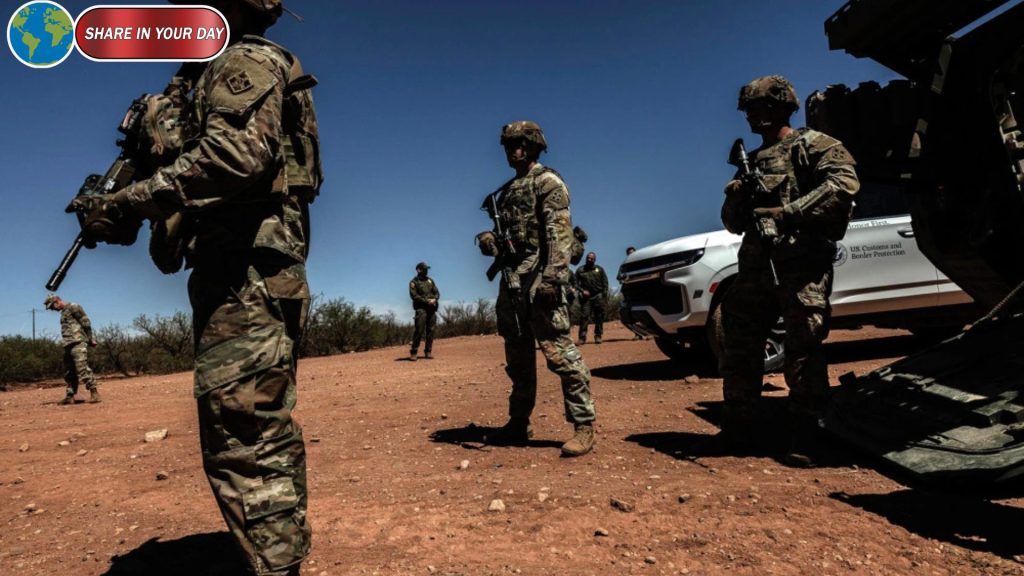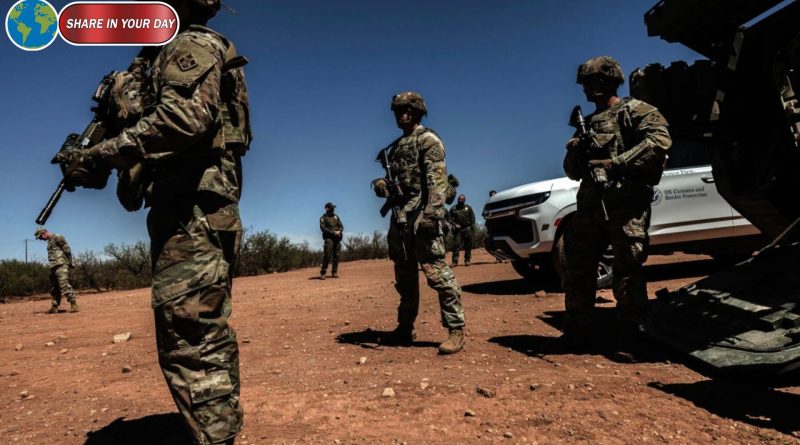U.S. Considers Expanded Mission in Mexico Targeting Drug Cartels
The U.S. administration is reportedly preparing a significantly expanded mission in Mexico aimed at dismantling powerful drug trafficking organisations, marking a new chapter in its approach to cross-border security and narcotics control.
A shift in strategy
According to sources familiar with the matter, the U.S. government is exploring plans for deeper involvement—possibly including direct operations—against Mexican-based cartels. These include increased intelligence sharing, enhanced surveillance and even potential use of unmanned aircraft targeting cartel infrastructure.
Foreign Policy
This effort follows the decision to designate several major cartels as foreign terrorist organisations (FTOs), elevating the threat they pose in the eyes of U.S. policymakers.
Foreign Policy
Why now?
Three major factors drive the escalation:
The increasing flow of synthetic opioids — especially fentanyl — from Mexico into the U.S., which U.S. officials view as a dire national-security and public-health threat.
The growing firepower and territorial control of Mexican cartels, which have come to resemble quasi-state actors in some regions.
A broader U.S. posture under this administration to treat transnational organised crime with tools once reserved for terrorism and global conflict.
Mexico’s reaction and sovereignty concerns
The government of Mexico has voiced serious concerns about any unilateral U.S. involvement on its soil. President Claudia Sheinbaum has warned against “invasion” and stressed that collaboration must respect Mexico’s sovereignty and constitutional order.
What the proposed mission may include
While specifics remain classified or under discussion, the following elements are reported to be under consideration:
Expanded deployment of U.S. intelligence assets (drones, electronic surveillance) along the U.S.–Mexico border and within Mexico.
Joint counternarcotics operations with Mexican authorities, including targeting cartel logistics, fentanyl labs and trafficking networks.
Utilisation of the terrorist-organisation designation to impose financial sanctions, freeze assets, and restrict support networks.
Foreign Policy
Contingency planning for more direct action in limited settings — though officials emphasise no final decisions have been made yet.
Strategic and diplomatic implications
This proposed shift raises several key implications:
Sovereignty & bilateral relations: Any U.S. appearance of operating unilaterally inside Mexico could strain the historic cooperation between the two countries.
Legal framework: The FTO designation broadens the U.S. legal toolkit, but also implies a confrontation-style paradigm rather than traditional law-enforcement cooperation.
Operational risk: The nature of cartel networks inside Mexico complicates purely kinetic responses; success depends on long-term intelligence, diplomacy and local partnerships.
Public message: The U.S. is signalling a zero-tolerance posture on drug supply, linking narcotics trafficking directly to national security rather than only criminal justice.
What to watch
Whether Mexico issues formal consent or agreement for U.S. operations on its territory.
How the U.S. defines the mission’s scope, rules of engagement and exit strategy.
Legal or policy changes in U.S. law enforcement, intelligence or military authorities to underpin the mission.
Reaction from regional Latin American states, which may view expansion of U.S. operations as precedent-setting.
The actual results: arrests, seizures, disruption of synthetic drug flows, and whether the strategy shifts cartel behaviour.
This emerging mission represents a significant pivot in U.S. strategy toward drug cartels — reframing them from organised crime entities into national-security threats that warrant robust, possibly even paramilitary responses. How Mexico responds, and how the mission is executed, will shape U.S.–Mexico relations and the broader war on narcotics for years to come





